The action takes place on and around the island of Ithaca, ten years after the Trojan Wars. English translations used in the synopsis are from Geoffrey Dunn's version, based on Raymond Leppard's 1971 edition, and from Hugh Ward-Perkins's interpretation issued with Sergio Vartolo's 2006 recording for Brilliant Classics. Footnotes provide the original Italian.
Prologue
The spirit of human frailty (l'humana Fragilità) is mocked in turn by the gods of time (il Tempo), fortune (la Fortuna) and love (l'Amore). Man, they claim, is subject to their whims: "From Time, ever fleeting, from Fortune's caresses, from Love and its arrows...No mercy from me!" They will render man "weak, wretched, and bewildered."
Act 1
In the palace at Ithaca, Penelope mourns the long absence of Ulysses: "The awaited one does not return, and the years pass by." Her grief is echoed by her nurse, Ericlea. As Penelope leaves, her attendant Melanto enters with Eurimaco, a servant to Penelope's importunate suitors. The two sing passionately of their love for each other ("You are my sweet life"). The scene changes to the Ithacan coast, where the sleeping Ulisse is brought ashore by the Phaecians (Faeci), whose action is in defiance of the wishes of gods Giove and Nettuno. The Phaecians are punished by the gods who turn them and their ship to stone. Ulysses awakes, cursing the Phaecians for abandoning him: "To your sails, falsest Phaeacians, may Boreas be ever hostile!" From the goddess Minerva, who appears disguised as a shepherd boy, Ulisse learns that he is in Ithaca, and is told of "the unchanging constancy of the chaste Penelope", in the face of the persistent importunings of her evil suitors. Minerva promises to lead Ulisse back to the throne if he follows her advice; she tells him to disguise himself so that he can penetrate the court secretly. Ulisse goes to seek out his loyal servant Eumete, while Minerva departs to search for Telemaco, Ulisse's son who will help his father reclaim the kingdom. Back at the palace, Melanto tries vainly to persuade Penelope to choose one of the suitors: "Why do you disdain the love of living suitors, expecting comfort from the ashes of the dead?" In a wooded grove Eumete, banished from court by the suitors, revels in the pastoral life, despite the mockery of Iro, the suitors' parasitic follower, who sneers: "I live among kings, you here among the herds." After Iro is chased away, Ulisse enters disguised as a beggar, and assures Eumete that his master the king is alive, and will return. Eumete is overjoyed: "My long sorrow will fall, vanquished by you."
Act 2
Minerva and Telemaco return to Ithaca in a chariot. Telemaco is greeted joyfully by Eumete and the disguised Ulisse in the woodland grove: "O great son of Ulysses, you have indeed returned!" After Eumete goes to inform Penelope of Telemaco's arrival a bolt of fire descends on Ulisse, removing his disguise and revealing his true identity to his son. The two celebrate their reunion before Ulisse sends Telemaco to the palace, promising to follow shortly. In the palace, Melanto complains to Eurimaco that Penelope still refuses to choose a suitor: "In short, Eurymachus, the lady has a heart of stone." Soon afterwards Penelope receives the three suitors (Antinoo, Pisandro, Anfinomo), and rejects each in turn despite their efforts to enliven the court with singing and dancing: "Now to enjoyment, to dance and song!" After the suitors' departure Eumete tells Penelope that Telemaco has arrived in Ithaca, but she is doubtful: "Such uncertain things redouble my grief." Eumete's message is overheard by the suitors, who plot to kill Telemaco. However, they are unnerved when a symbolic eagle flies overhead, so they abandon their plan and renew their efforts to capture Penelope's heart, this time with gold. Back in the woodland grove, Minerva tells Ulisse that she has organised a means whereby he will be able to challenge and destroy the suitors. Resuming his beggar's disguise, Ulisse arrives at the palace, where he is challenged to a fight by Iro, ("I will pluck out the hairs of your beard one by one!"), a challenge he accepts and wins. Penelope now states that she will accept the suitor who is able to string Ulisse's bow. All three suitors attempt the task unsuccessfully. The disguised Ulisse then asks to try though renouncing the prize of Penelope's hand, and to everyone's amazement he succeeds. He then angrily denounces the suitors and, summoning the names of the gods, kills all three with the bow: "This is how the bow wounds! To death, to havoc, to ruin!"
Act 3
Deprived of the suitors' patronage, Iro commits suicide after a doleful monologue ("O grief, O torment that saddens the soul!") Melanto, whose lover Eurimaco was killed with the suitors, tries to warn Penelope of the new danger represented by the unidentified slayer, but Penelope is unmoved and continues to mourn for Ulisse. Eumete and Telemaco now inform her that the beggar was Ulisse in disguise, but she refuses to believe them: "Your news is persistent and your comfort hurtful." The scene briefly transfers to the heavens, where Giunone, having been solicited by Minerva, persuades Giove and Nettune that Ulisse should be restored to his throne. Back in the palace the nurse Ericlea has discovered Ulisse's identity by recognising a scar on his back, but does not immediately reveal this information: "Sometimes the best thing is a wise silence." Penelope continues to disbelieve, even when Ulisse appears in his true form and when Ericlea reveals her knowledge of the scar. Finally, after Ulisse describes the pattern of Penelope's private bedlinen, knowledge that only he could possess, she is convinced. Reunited, the pair sing rapturously to celebrate their love: "My sun, long sighed for! My light, renewed!"


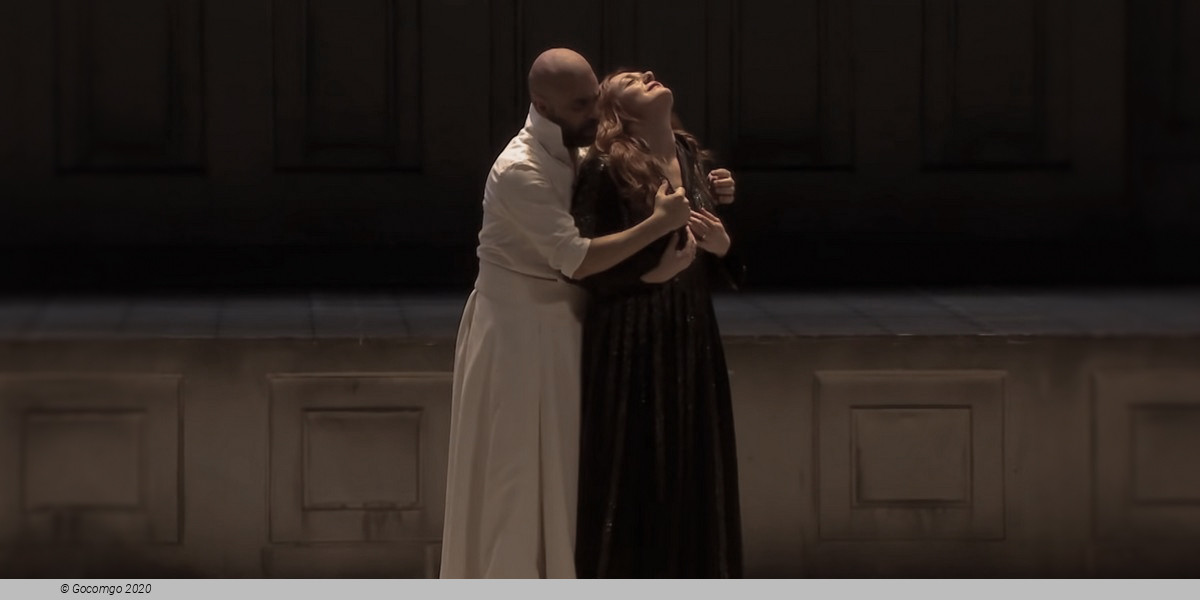
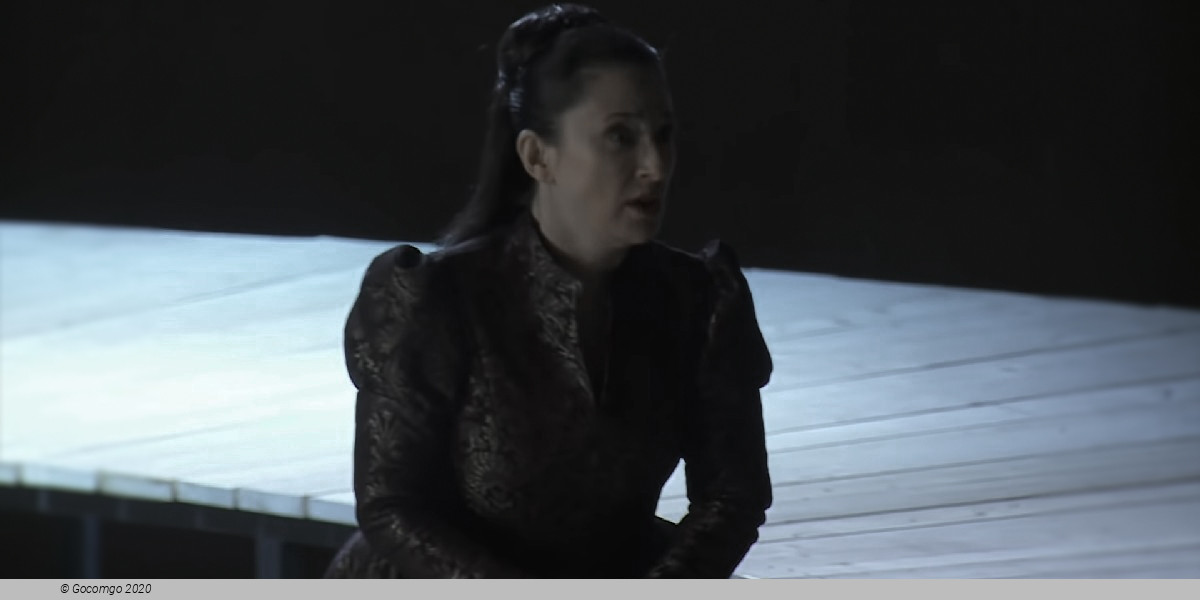
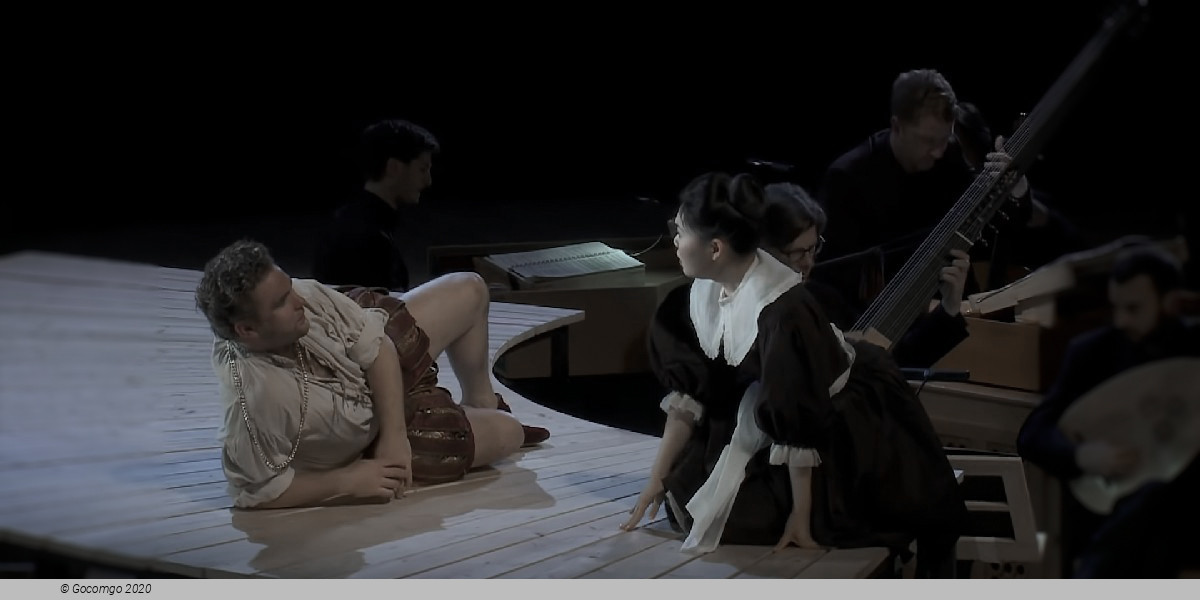
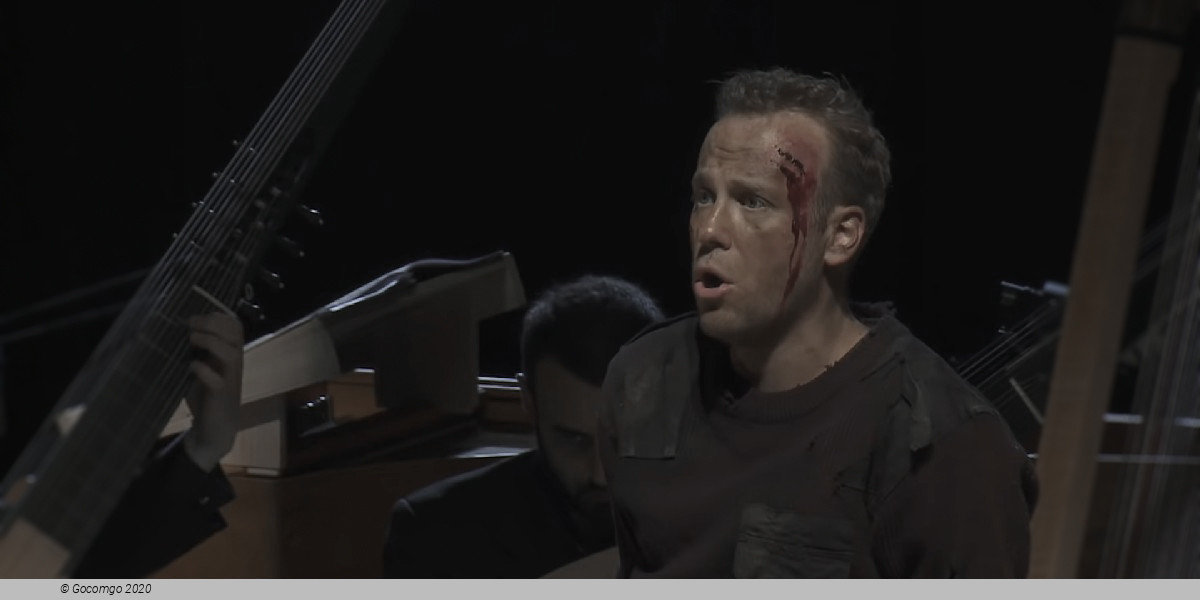
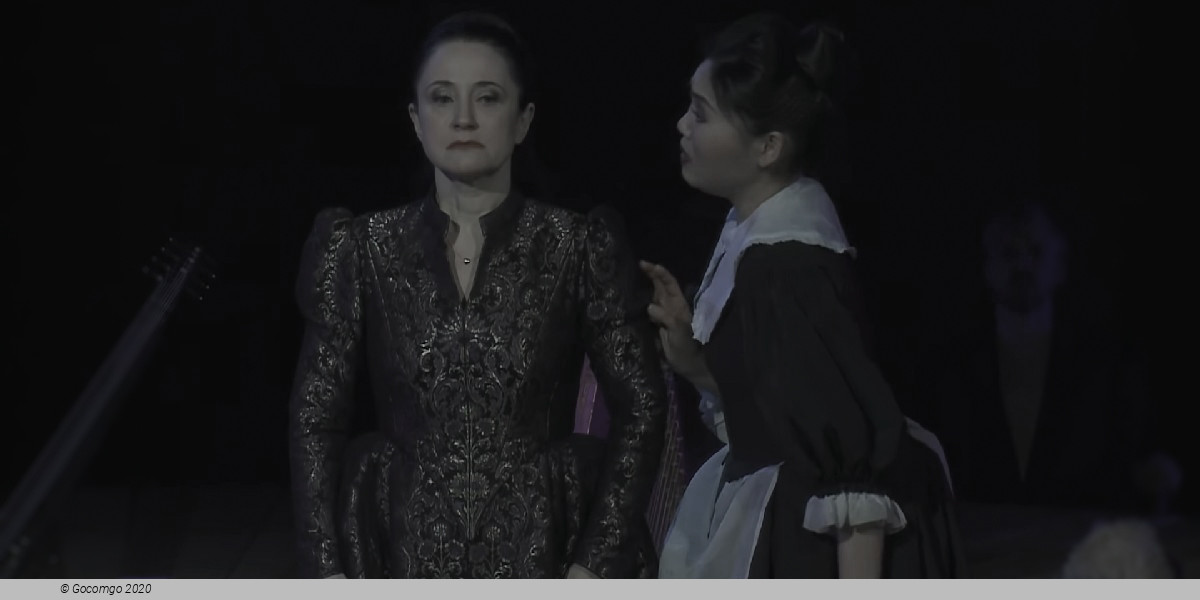
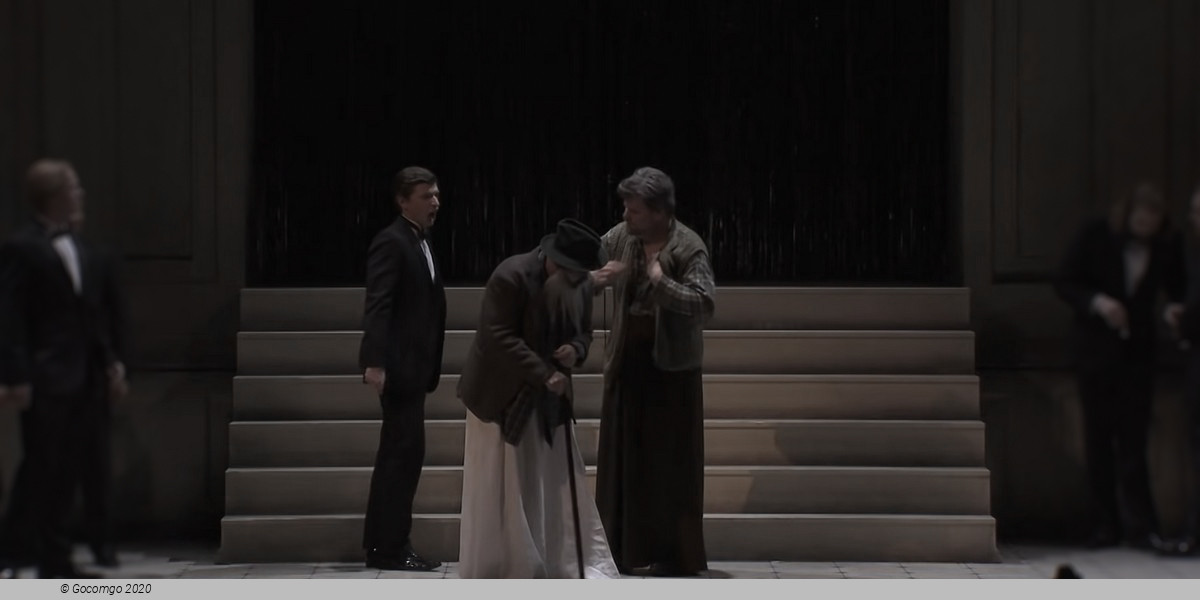
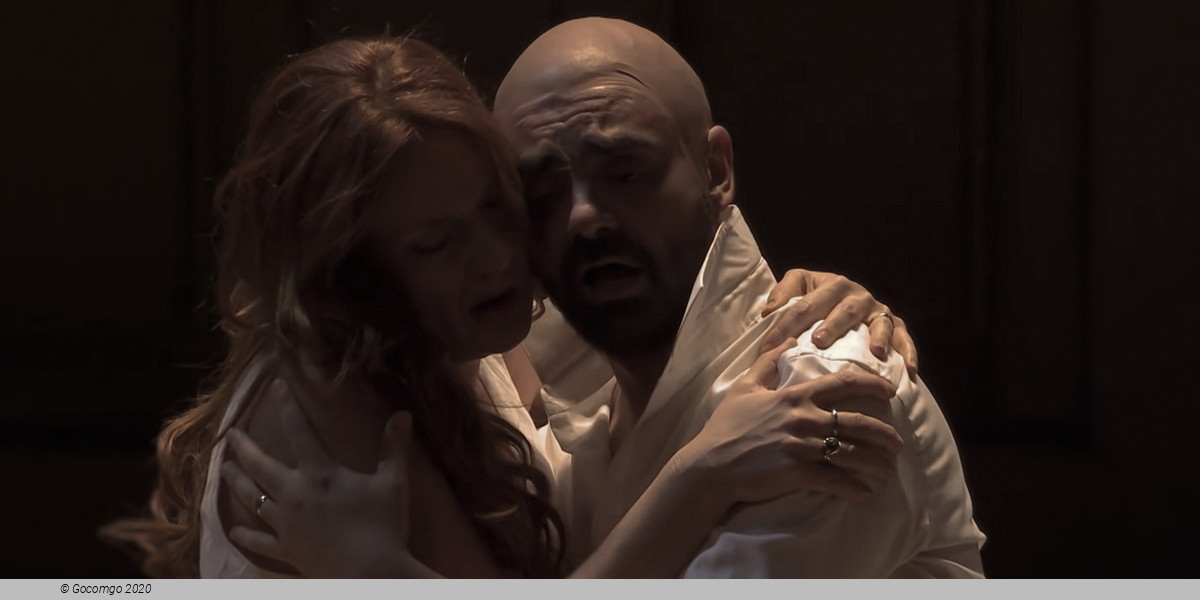
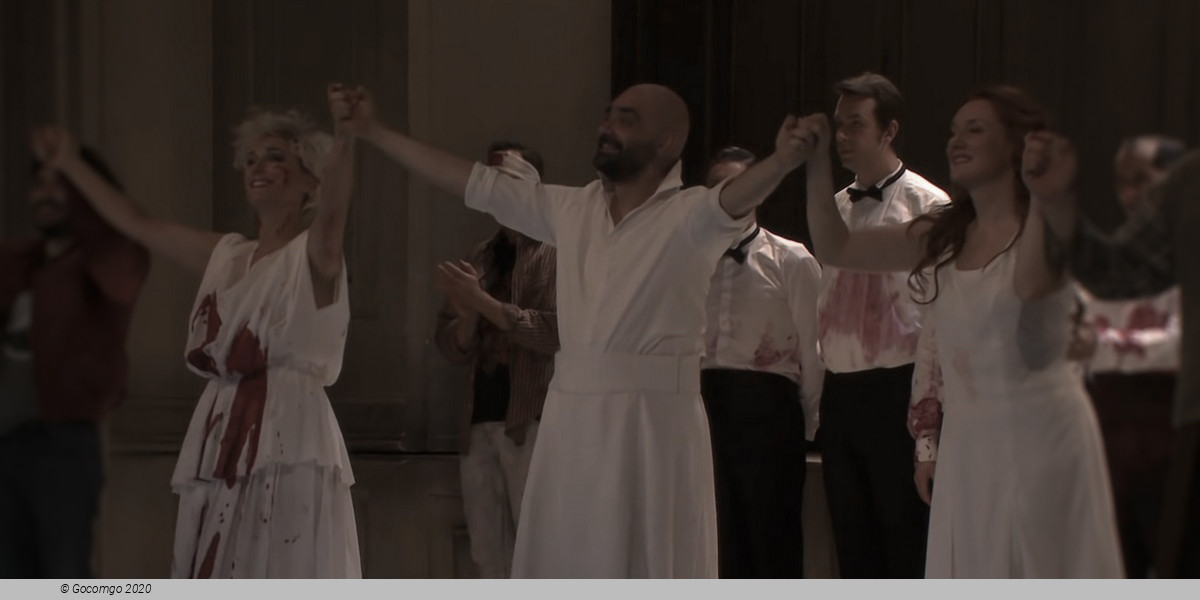
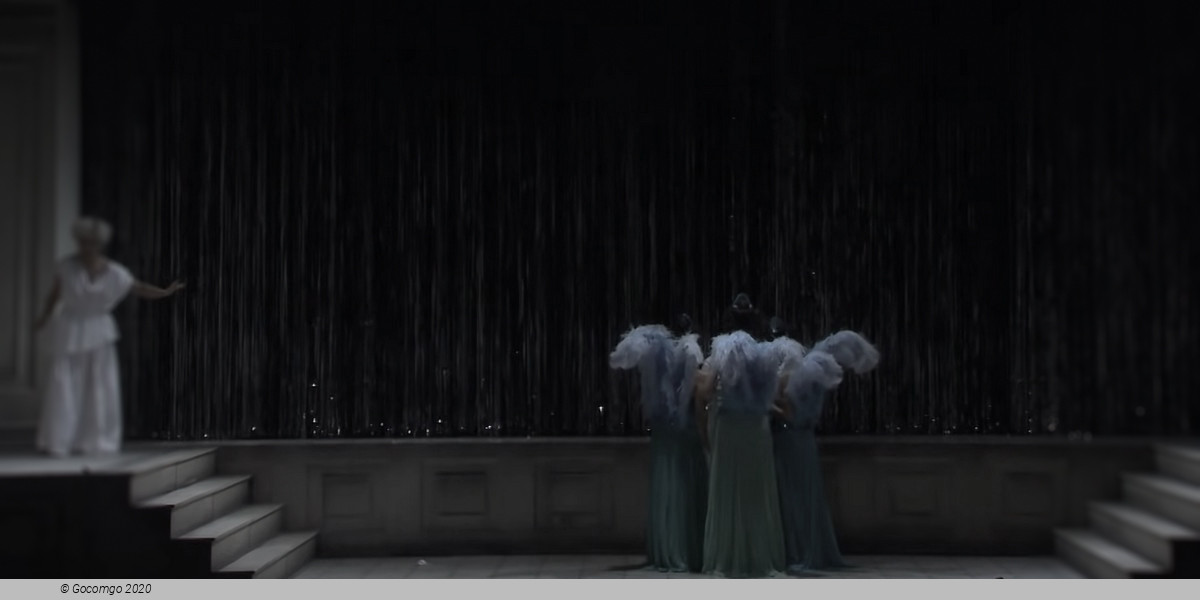
 Via della Pergola 12/32
Via della Pergola 12/32